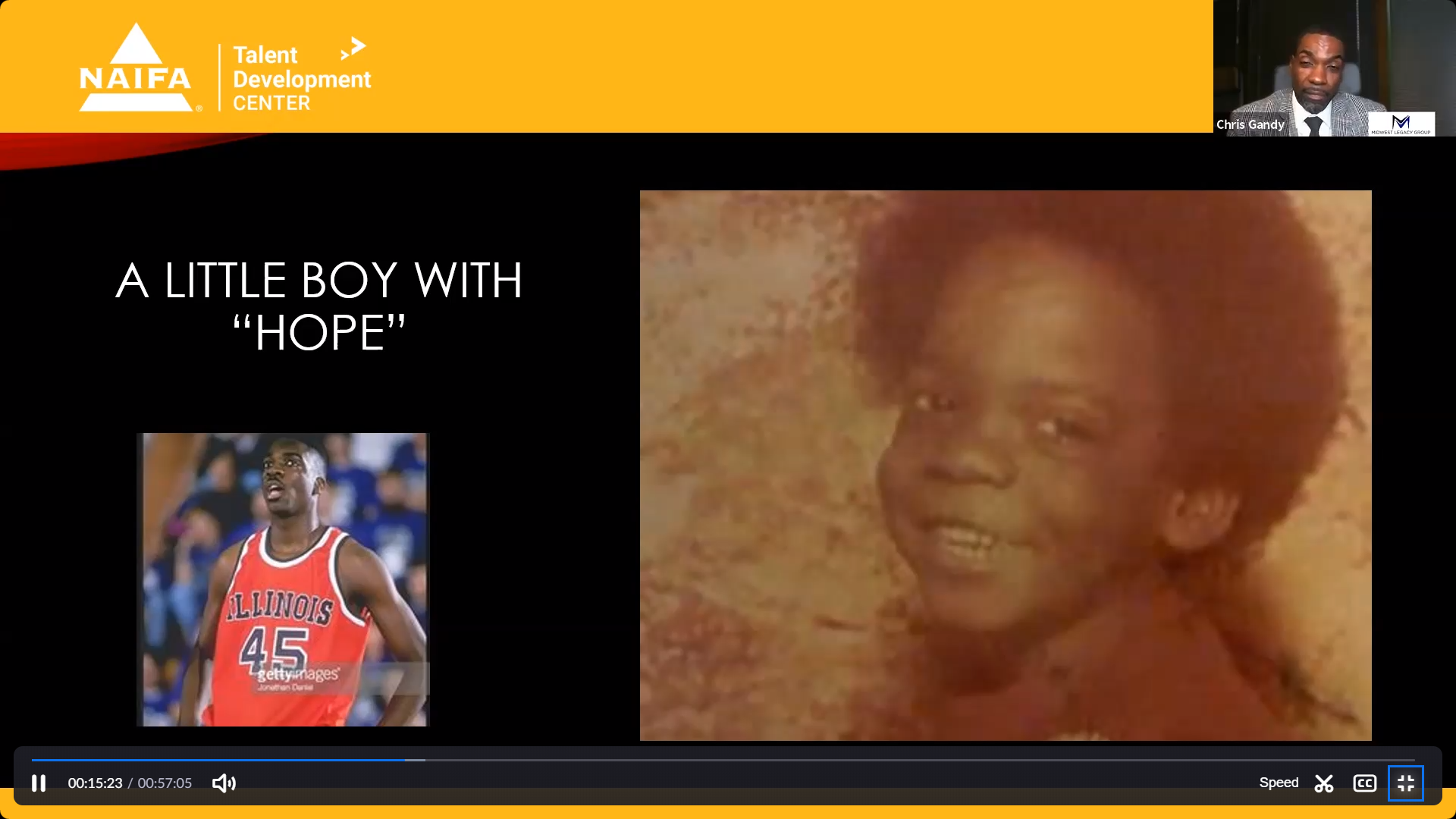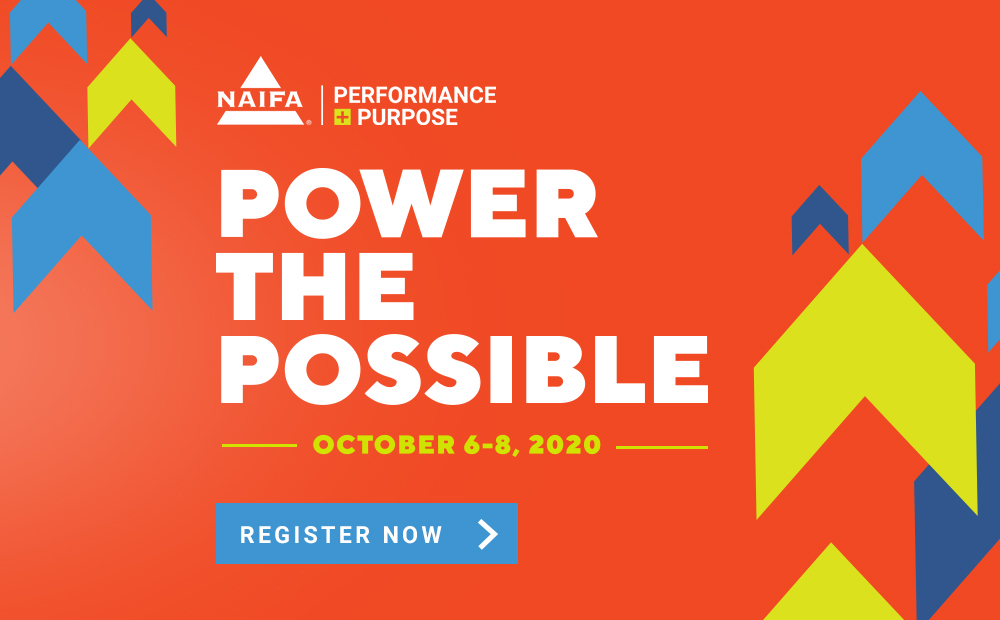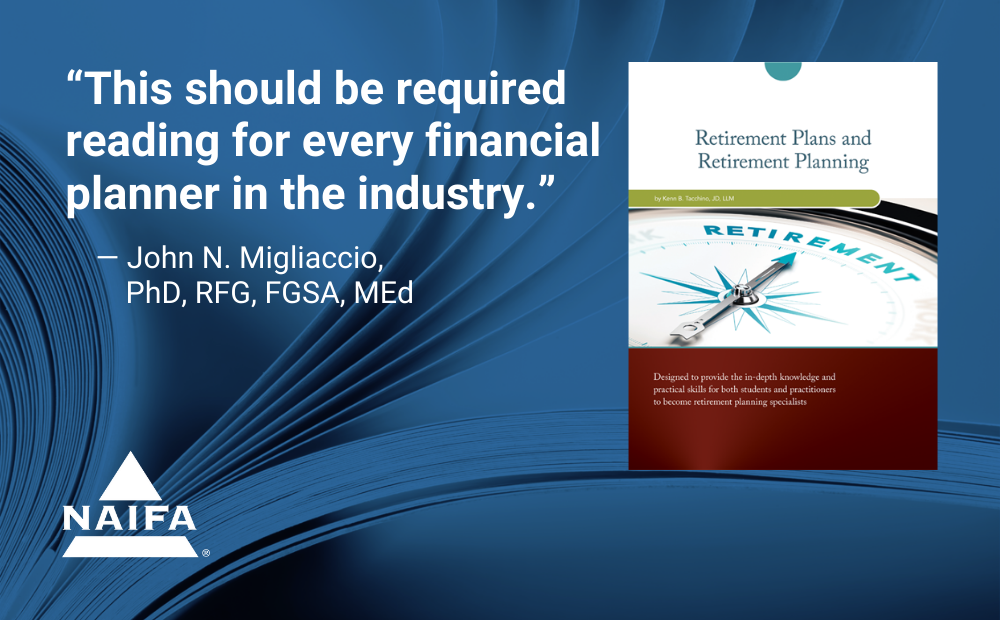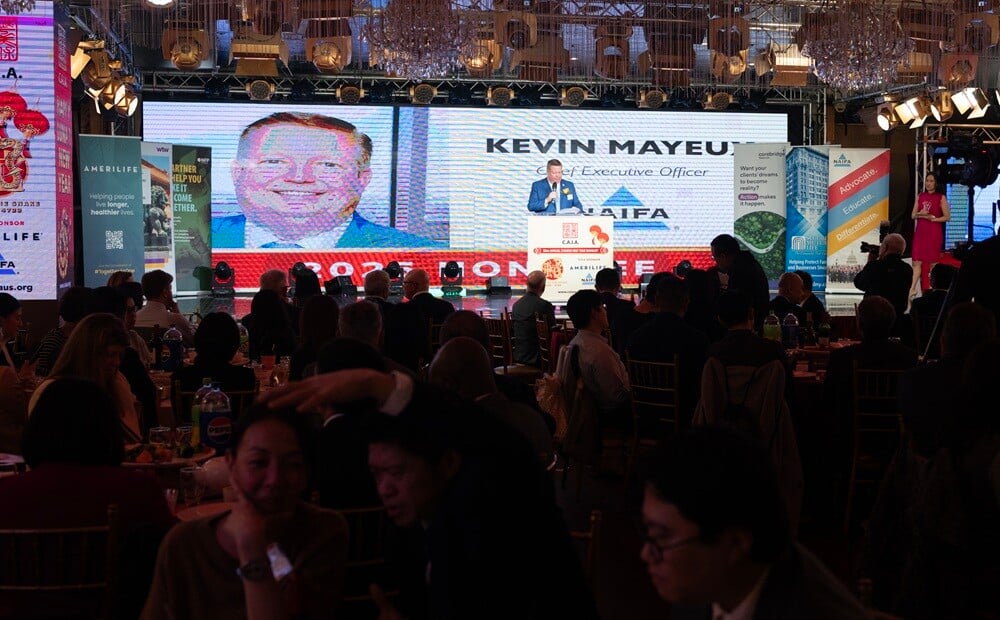Watch the webinar, "Disparity and Opportunities" on-demand.
Racial injustice is a serious problem not just for our society and African American communities but also for the insurance and financial services industry. Chris Gandy, a financial professional for 21 years and the President of NAIFA-Chicagoland, provided insights into his experience as an African American in the industry and a snapshot of how current events are impacting African American communities.
Gandy, born in 1973 in Mississippi and moving to Illinois when he was two years old, learned early in his life that our country is divided along “clear, distinctive racial lines.” He went to the University of Illinois on a basketball scholarship and pursued a professional basketball career. At age 26, his sports career ended and he soon entered the financial services industry.
The whole time, he was driven by a promise he had made to his mother that he would make her proud. “And so, people ask all the time, ‘Why do you do what you do?’” he said. “And I say simply, ‘Because I promised my mom.’ I promised my mother no matter what happens – this isn’t a black or white thing, it’s a human thing – I promised my mother I would make her proud.”
The State of Minority Communities
We are in unprecedented times. Protests against racism and police brutality as well as the COVID-19 pandemic affect all of society. However, coronavirus is 93% more likely to seriously impact African American and Hispanic communities, Gandy said. But it started before COVID-19. A Forbes magazine study, he said, revealed an existing “wealth divide” that found minority families have just five cents for every dollar of wealth held by White families.
“We have to ask, ‘What happened?’” Gandy said. “Is there a reason why that’s the case?”
When he began in the life insurance and financial services industry in Kankakee, IL, he was told to find business “in his natural market.” In Kankakee at the time, the average household income was $45,000 and the average case he sold was for $30 per month. He also found that he was one of very few African American insurance agents, a situation that continues.
Out of 1.2 million licensed insurance and financial services advisors, 0.4% are African American or Latino, Gandy said, and less than 1% are in leadership positions.
“Is it fair to say that our industry should look like the people we represent, the clients we serve?” Gandy asked. “Isn’t that what the industry was built on. Isn’t that how it’s supposed to be?”
African Americans have buying power of $3.9 trillion, Gandy said, presenting a great opportunity for insurance and financial services professionals. “But we’ve been asking them to spend money on products that they’re unfamiliar with,” he said. “Many of us in our families have been the first ones to go to college. The first ones to be educated. The first ones to be able to get the information to be able to provide for our families one generation ahead and one generation behind.”
The COVID-19 Pandemic
Gandy has clients of many different racial and cultural backgrounds. In his experience during the COVID-19 pandemic, he said, all communities have experienced economic distress, uncertainty, lack of human interaction, death and anxiety. But while the biggest concern for most non-black families has been adjusting their lifestyle to deal with pandemic restrictions, black families are much more likely to be dealing with a spike in violence and concerns about survival.
“Most families just changed their lifestyle,” he said. “They say, ‘We’re not going to eat out as much. We’re going to be able to save money and we’re not at risk of potentially losing our home.’ Most of the Black families I talked to went into survival mode, which created chaos.”
The chaos was compounded by the homicide of George Floyd and the spotlight on racial injustice and police brutality issues. It came in the form of riots, market volatility, sensationalized news reports, political spin, stay at home orders, travel restrictions, mass unemployment, and overwhelmed hospitals. The chaos has exacerbated the racial divide, Gandy said.
But there are also opportunities, Gandy said. Consumers are more interested in life insurance than ever before. Life insurance case volumes increased by 25 to 50% during the first months of the pandemic, Gandy said. The demand for disability and property and casualty insurance has also increased. People, and specifically people in African American communities, are seeking help and advice.
“Here’s my question for everybody on this call,” Gandy said. “How many of those, if you look at your book of business, were minority and diversity calls for you? … Don’t pass over that opportunity.”
What African American Voices Are Saying
In conversations with African Americans professionals and clients, Gandy has discovered a few common themes. First of all, African American “just want to be heard.” They aren’t looking for someone to solve their problems for them, but they want equality and the ability to solve their own problems. There is a misconception that the African American community wants revenge, but this is not what he is hearing, Gandy said.
“The only thing I think the majority of people are asking for is equality, the opportunity to compete on the same playing field,” he said. They seek dignity, to be treated as humans, to be recognized, and to have the same civil liberties as every other American. They want their fellow Americans to appreciate and understand the struggle.
The insurance and financial services industry must create a path that African American professionals can follow to find success. The effort needs to be “company-agnostic” across the entire industry, with companies setting aside their competitive impulses to share ideas and address the problem together, Gandy said.
“That’s what I mean when I say, ‘We’re in this together,’” Gandy said. “You’re not in my shoes and I don’t want you to be in my shoes. I just want you to understand that when you see someone or you see an opportunity to help somebody, you reach back and you help them. And you appreciate the struggle.”
What Can I Do?
Gandy closed with some action items he asked his professional colleagues to do:
- Dedicate yourself to community involvement, specifically involvement in communities of color
- Find minority-owned companies and do business with them
- Partner with someone who does not look like you
- Market to African American and minority communities
- Examine your book of business and ask how much is African American or minority business and if it looks like the world we live in
- Find somebody who does not look like you and invite them to join the industry
- Listen to and try to understand the concerns of minority communities and professional colleagues; ask someone to share their story
- Treat each other like you want your children to be treated: with kindness, extra effort and love










.png?width=300&height=300&name=CC%202025%20Ad%20(300%20x%20300%20px).png)
.png?width=300&height=600&name=Tax%20Talk%20Graphic%20-%20email%20tower%20(300%20x%20600%20px).png)



.png?width=300&name=NAIFA-FSP-LH%20with%20tagline%20-%20AT%20blog%20email%20ad%20(300%20x%20250%20px).png)
.png?width=728&height=89&name=2024%20Congressional%20Conference%20(728%20x%2089%20px).png)
